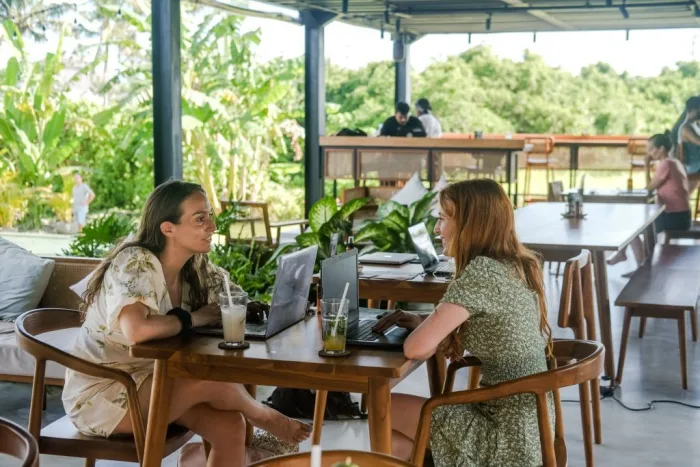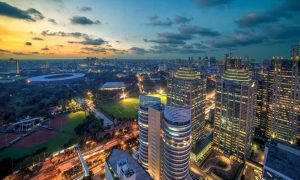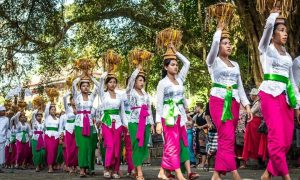Over the past few years, the wave of remote work has revolutionized the understanding of "work-life". From beachside cafes to jungle villas, the "digital nomad" has become an emerging lifestyle. As Southeast Asian countries introduce visas for remote work, theIndonesia Overhauls Digital Nomad Visa in 2025It has become a highly sought-after new "remote paradise".
If you dream of working and surfing in Bali or enjoying a low-cost life in Jakarta, this guide will help you understand the application requirements, process, suitable people and real-life experience of the Indonesian Digital Traveler Visa, and help you easily land on the ideal life of "working and vacationing".
I. Why choose Indonesia as a destination for remote work?
-
Low cost of living + high quality of life
Whether it's accommodation, food or transportation, the overall consumption level in Indonesia is much lower than in Europe and the United States, making it suitable for freelancers to control their budget. -
Gradual improvement of infrastructure
Although Indonesia is still a developing country, the quality of WiFi and coworking space (coworking space) is quite mature in cities such as Bali and Jakarta. -
Tourist visas are no longer enough
Whereas digital nomads used to rely on "tourist visas" to enter and exit the country frequently, they now have the peace of mind and freedom of a legal, long-term renewable visa option.
II. Indonesia's latest policy on digital nomad visas for 2025
In 2025 the Indonesian government made significant changes to this visa category to better suit the actual needs of remote workers:
Visa Type:Digital Nomad Visa (category D5)
-
Period of validity: initial validity of 6 months, which can be extended to 12 months, with plans to support up to 2 years in the future.
-
Multiple Entry: Allows the holder to make multiple trips during the validity of the visa.
-
No need to pay personal income tax in Indonesia, provided that the income is derived from outside the country.
III. Application requirements in detail
To apply for a digital nomad visa for Indonesia, you need to fulfill the following conditions:
| prerequisite | Request for clarification |
|---|---|
| citizenship | Most non-Indonesian nationals can apply (including Chinese nationals) |
| Income requirements | Provide proof of stable income of more than $3,000 per month (e.g., contract, bank flow) |
| Employer Requirements | must beOverseas corporate or freelance clientsRemote work, not working for Indonesian companies |
| health insurance | Provide proof of valid health insurance covering Indonesia |
| clean bill of health | A notarized record of no criminal conviction within the last 6 months is required (in Chinese and English or English translation) |
IV. Full analysis of the application process (online + offline)
-
Prepared Materials
Including passport scans, proof of income, insurance, employment contracts, photos, etc. It is recommended to organize and do English translation in advance. -
Online Application
Login IndonesiaimmigrantsSubmit an online application on the Bureau's website or through a third-party certified platform. It is necessary to upload all documents and pay the visa fee (ranging from about 150-200 USD).
-
Awaiting trial
The review cycle is usually 7-14 working days. If you are asked for additional information, it is advisable to respond promptly to avoid delays. -
Print e-visa after approval
No interview is required. Upon approval, you will be issued an e-Visa for direct entry into Indonesia. -
Post-arrival check-in
Within 30 days of arrival in Indonesia, you are required to file a temporary residence record with the immigration office.
V. Who is suitable to apply for Indonesia Digital Nomad Visa?
✅ Remote developers, UI designers, brand consultants, cross-border e-commerce practitioners
✅ Content Creator (YouTuber, Podcaster, Photographer)
✅ Online teacher, freelance translator, project manager
✅ Freelancers with stable income who aspire to a low-pressure life

VI. The Real Experience: Working Life on Bali
🎤 Sharing from Luna the Digital Nomad:
"I earn about $6,000 USD per month and settled in Ubud (Ubud) in early 2024 after switching to a digital nomad visa. During the day I write code remotely in a co-working space and go to the beach to relax at night. Renting a detached villa with a pool for less than $500 USD per month is a slow pace of life, but rich inside."
But a word of caution:
-
Medical resources are relatively limited on the island and major illnesses require traveling to Jakarta or flying to Singapore.
-
The network is occasionally unstable, so it is recommended to have a local 4G card + mobile WiFi.
VII. Future paths and optional upgrades
Currently the Indonesian digital nomad visa does not lead directly to permanent residence or naturalization. However, if at a later stage you wish to stay more permanently, there are two possible extension paths:
-
change over toEntrepreneur Visa: Apply for KITAS as a legal person or officer after establishing a company.
-
Those who are married to an Indonesian citizen can switch to a family visa and eventually apply for KITAP (Permanent Residency).
VIII. Conclusion: the possibility of free work in a "tropical utopia"
If you're tired of the fast pace of the city and long for a truly "free life," then by 2025Indonesia ImmigrationA new door opens for you. Legal, flexible, and tax-friendly, combined with a unique natural landscape and international atmosphere, Indonesia has undoubtedly ranked as one of the top destinations for remote workers around the world.
Next, maybe all you need is a laptop, a plane ticket, and the courage to change the pace of your life once.






